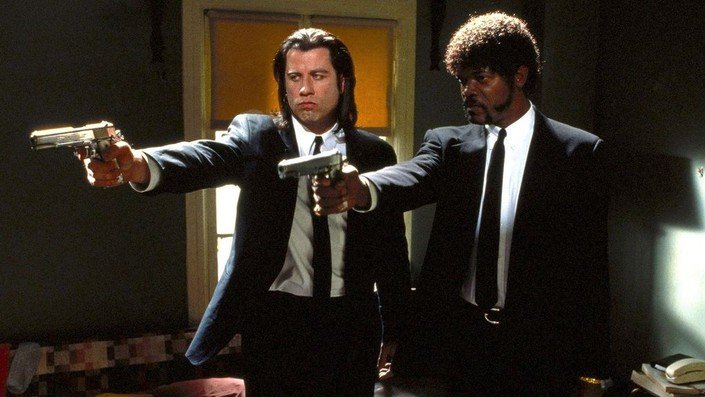
In the age of climate change, environmental catastrophe, and societal indifference, the Netflix film “Don’t Look Up” stands as a bold and unapologetic satire that holds a mirror up to the world. Directed and written by the acclaimed Adam McKay, this thought-provoking cinematic experience has been the subject of much discussion and debate since its release.
As a content creator, I had the opportunity to review the film and share my insights in a recent YouTube video. Now, I’m excited to delve deeper into the themes and messages of “Don’t Look Up” in this comprehensive blog post. Join me as we explore the layers of this scathing satire and unpack its relevance to the pressing issues of our time.
The Premise: A Looming Cosmic Catastrophe
At the heart of “Don’t Look Up” lies a simple, yet profoundly unsettling premise: a team of astronomers, led by the characters played by Leonardo DiCaprio and Jennifer Lawrence, discover a massive comet on a direct collision course with Earth. With a 99.78% chance of impact, the fate of humanity hangs in the balance.
What follows is a biting commentary on the way in which modern society, governments, and the media respond to such a catastrophic threat. The film’s narrative weaves together a tapestry of themes, including the politicization of scientific facts, the power of misinformation, the influence of corporate interests, and the apathy of the general public.
Dissecting the Satire: Layers of Absurdity and Relevance
One of the most striking aspects of “Don’t Look Up” is its unapologetic use of satire to drive home its message. The film’s director, Adam McKay, is known for his ability to blend sharp social commentary with a comedic touch, and this project is no exception.
Throughout the film, we witness a series of absurd and often cringe-worthy moments that mirror the real-world challenges we face when it comes to addressing global crises. From the president’s (played by Meryl Streep) dismissive and self-serving response to the impending disaster, to the media’s sensationalized coverage and the public’s tendency to prioritize entertainment over substance, the film relentlessly skewers the very systems and behaviors that often hinder our ability to confront existential threats.
The president’s character, a thinly veiled caricature of political opportunism and incompetence, serves as a scathing indictment of the way in which some leaders prioritize their own interests over the well-being of their constituents.
The media’s portrayal, with its focus on ratings and clickbait over substantive reporting, reflects the troubling trend of misinformation and the normalization of the “see it to believe it” mentality.
The public’s apathy and willingness to be distracted by trivial matters, even in the face of an impending catastrophe, serves as a mirror to our own tendencies to bury our heads in the sand when confronted with uncomfortable truths.
By exaggerating these elements to the point of absurdity, “Don’t Look Up” forces the audience to confront the very real and unsettling parallels between the film’s fictional world and our own. It’s a bold and uncompromising approach that challenges us to reflect on our own complicity in the face of global crises.
The Importance of the Message: Aligning with the Climate Change Narrative
While “Don’t Look Up” may be set against the backdrop of a cosmic disaster, its underlying message is deeply rooted in the pressing issue of climate change. The film’s director, Adam McKay, has been vocal about his desire to draw a clear parallel between the film’s narrative and the real-world challenges we face in addressing the climate crisis.
Throughout the film, we see the astronomers, played by DiCaprio and Lawrence, struggle to convey the urgency of their discovery to a public and political establishment that is more interested in maintaining the status quo than taking meaningful action. This dynamic mirrors the ongoing battle faced by climate scientists and activists who have been sounding the alarm on the devastating effects of global warming for decades.
The film’s exploration of the politicization of scientific facts, the power of misinformation, and the influence of corporate interests all serve as thinly veiled references to the very real obstacles that have hindered our collective efforts to address the climate crisis. By exaggerating these elements to the point of absurdity, “Don’t Look Up” forces us to confront the uncomfortable truth that, in many ways, our response to the climate emergency has mirrored the fictional world’s response to the impending comet disaster.
As a content creator, I can’t help but be impressed by the film’s ability to so effectively align its narrative with the climate change discourse. It’s a bold and unapologetic approach that challenges us to confront our own complacency and the systemic failures that have allowed the climate crisis to escalate to such a critical point.
The Performances: Bringing the Satire to Life
One of the standout elements of “Don’t Look Up” is the exceptional performances delivered by the film’s ensemble cast. From the lead roles played by DiCaprio and Lawrence to the supporting performances by Meryl Streep, Jonah Hill, and a host of other talented actors, the film’s success is undoubtedly bolstered by the caliber of its cast.
DiCaprio, in particular, delivers a nuanced and compelling performance as the academically-inclined astronomer, Dr. Randall Mindy. His character’s journey from a reserved, jargon-heavy scientist to a more relatable and media-savvy public figure is a testament to the actor’s versatility and ability to convey the emotional weight of the film’s central dilemma.
Jennifer Lawrence’s portrayal of Dr. Kate Dibiasky, the more passionate and emotionally-driven member of the astronomer duo, is equally impressive. Her character’s unwavering determination to sound the alarm and her frustration with the public’s indifference serve as a powerful counterpoint to DiCaprio’s more measured approach, creating a dynamic that resonates with the audience.
The supporting cast, led by the formidable Meryl Streep as the self-serving President Orlean, also delivers standout performances. Streep’s ability to balance the character’s comedic moments with the underlying tragedy of her actions is a testament to her acting prowess. Jonah Hill, as the president’s son and chief of staff, also shines in his portrayal of the cynical and opportunistic political operative.
Ultimately, the film’s success in translating its scathing satire to the screen is largely due to the exceptional performances of its cast. By bringing these larger-than-life characters to life, the actors help to ground the film’s absurdist elements in a sense of emotional authenticity, making the audience’s investment in the story all the more compelling.
The Divisive Response: Navigating the Complexities of the Film’s Message
Since its release, “Don’t Look Up” has generated a significant amount of discussion and debate, with reactions ranging from enthusiastic praise to scathing criticism. This divisive response is, in many ways, a testament to the film’s ability to provoke deep and meaningful conversations about the state of our society and our collective response to global crises.
One of the primary points of contention surrounding the film has been its approach to satire. Some viewers have argued that the film’s heavy-handed and exaggerated depiction of certain societal ills, such as the media’s sensationalism and the public’s apathy, ultimately undermines its message by reducing complex issues to caricatures. Others, however, have praised the film’s unapologetic and uncompromising style, arguing that it is precisely this bold approach that forces the audience to confront the uncomfortable truths that lie at the heart of the film’s narrative.
Another point of discussion has been the film’s focus on the American experience, with some critics arguing that the film’s narrow perspective fails to adequately address the global nature of the climate crisis. While it’s true that the film’s primary setting is the United States, and its commentary is largely centered on American institutions and cultural trends, the underlying message of the film can be seen as a universal call to action, regardless of one’s geographic location.
Ultimately, the divisive response to “Don’t Look Up” is a testament to the film’s ability to provoke deep and meaningful conversations about the pressing issues of our time. Whether one agrees or disagrees with the film’s approach, it is undeniable that it has succeeded in sparking a much-needed dialogue about the ways in which we, as a society, respond to existential threats and the urgent need to address the climate crisis with the seriousness and urgency it deserves.
A Clarion Call for Action
In the end, “Don’t Look Up” stands as a bold and unapologetic cinematic experience that challenges us to confront the uncomfortable truths about our society’s response to global crises. Through its scathing satire and exaggerated depiction of the various forces that hinder our ability to address the climate emergency, the film serves as a clarion call for action, urging us to break free from the cycles of complacency, misinformation, and corporate influence that have so often stifled our collective efforts to create a more sustainable and equitable future.
As a content creator, I can’t help but be inspired by the film’s willingness to tackle these complex and often daunting issues head-on. While the execution may not be perfect, and the film’s narrow focus on the American experience may be a point of contention for some, the underlying message of “Don’t Look Up” is one that resonates deeply with the pressing challenges we face in the 21st century.
So, I encourage you to watch “Don’t Look Up” with an open mind and a willingness to engage with the film’s thought-provoking themes.
Together, let’s use the power of storytelling and critical analysis to drive meaningful change and confront the existential threats that we face as a global community. The future of our planet depends on it.


